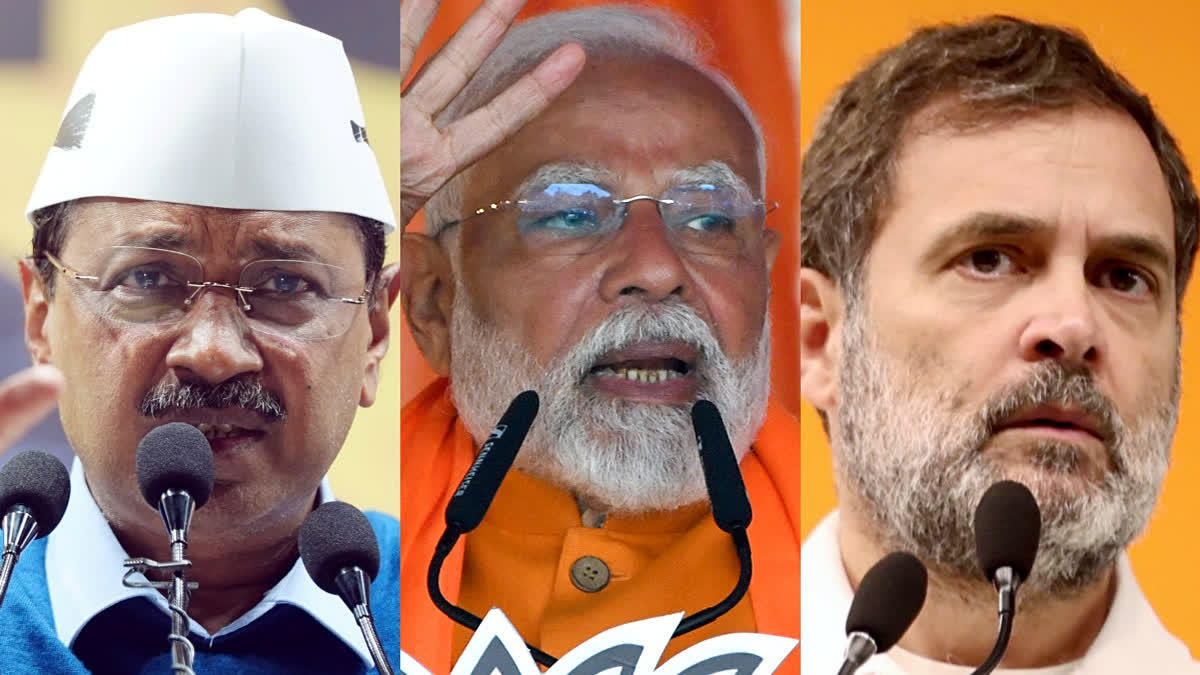New Delhi: Except perhaps Bombay, and not Mumbai, no other city in the country holds as much of a sway over the public imagination as much as Delhi.
This is the reason why the assembly elections to what is known as the half-state of Delhi are keenly contested and equally keenly watched. The 2025 edition of the state elections is more so as Delhi’s politics has taken the kind of convulsions that had no precedents. It has had the bizarre distinction of the Chief Minister as well as other ministers from AAP going to jail.
It also had the state government and the centre contesting with each other to ascertain the power of the state. On February 5, all the main parties, BJP, Aam Admi Party (AAP) and the Congress will try to win back Delhi. For the first time in long years, it will be a keenly contested poll with AAP, Congress as well as BJP pulling out all stops to win a majority. By the look of it, AAP is ahead by a margin and it could be Arvind Kejriwal who could win again.
Nearly every city, town, big or small, across the country and its neighbourhood, has named areas – residential, commercial, and or even political – after those found in the national capital. To satiate the upwardly mobile, ambitious appetites of the regional elite, politicians, bureaucrats, city planners and builders have borrowed the names of some of Delhi’s most sought-after pin codes – Vasant Vihar, Green Park and even Panchshseel.
This marks a change from the early days of post-independence when the cultural hegemony of Delhi was exported to other parts through Jama Masjid and Chandni Chowk, as many of them would spring up in small-town India.
But now, this change as evinced by the names that inspire ambition, reflects the political, and ideological proclivities of those in power, and the rulers of the capital. If they were to accept the validity, historicity and national importance of places like Chandni Chowk, or roads named after Mughal Emperors, then these again would gain importance across the country.
Besides the Jama Masjid and Chandni Chowk of old, in post-independent India, names of colonies like Vasant Vihar, and Green Park (but this is in London also) routinely pop up in other parts of the country.
Visibly aspirational, the desire of regional politicians and bureaucrats to rechristen their areas after those that are in the capital city has yet another dimension. The names of these colonies reflect the political and ideological proclivities of the rulers of capital.
If they accept the past then places like Chandni Chowk or roads named after the Mughal Emperor Aurangzeb would be readily embraced. If the politics of the country changes, as it has in Delhi in this past decade, then names from a past that is considered offensive by the present government, go away.
Due to the importance of the capital and how the message from here goes far, the elections to the Delhi assembly enjoy an importance that far exceeds the status of other half states as it does not have police powers and is still controlled by a nominee of the central government- the lieutenant governor.
Delhi has a population of 33 million and a voter base of 15.6 million- that’s very huge. More importantly, it has people living here who belong to different parts of the country. For instance, Karol Bagh is where Tamilians mostly reside; Chittaranjan Park has a preponderant population from East and West Bengal whereas East Delhi has people largely from Uttarakhand.
The capital’s population includes the floating population of migrants who live here, but vote elsewhere. However, they have a stake in the capital remaining inclusive and magnanimous. They are also purveyors of information about the capital that they pass on to their brethren in other parts of the country.
If the Delhi elections are indeed a total of the entire country, then why do the people of the capital have a voting preference distinct for Lok Sabha and Assembly? Why is a party good for the Delhi state and not for the national election? Wouldn’t that allow the people of Delhi a louder and more coherent voice in the parliament? Would it not protect AAP, for instance, better in parliament and outside?
